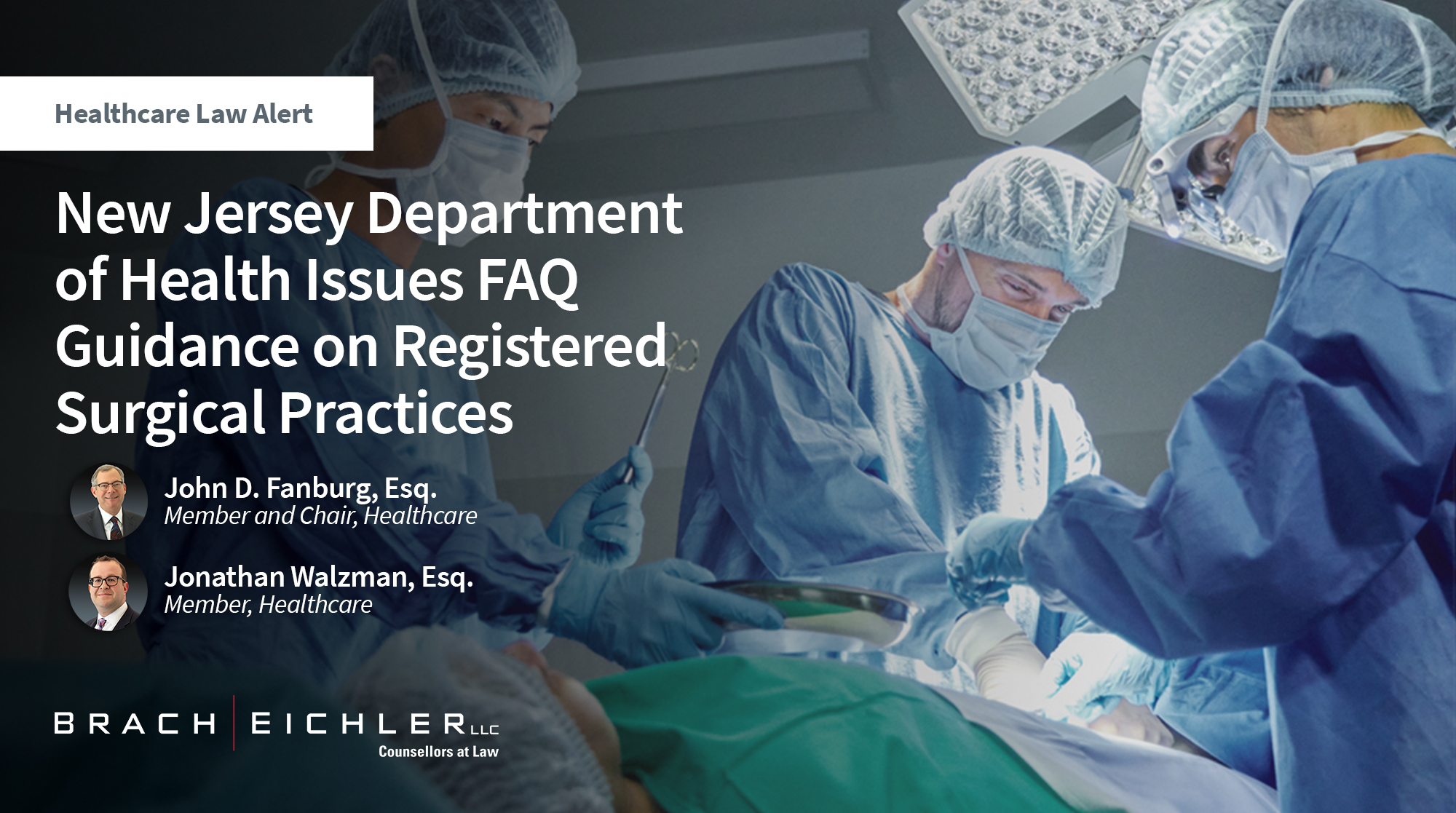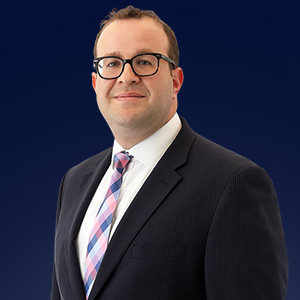New Jersey Department of Health Issues FAQ Guidance on Registered Surgical Practices

9/4/2025
On August 28, 2025, the New Jersey Department of Health (DOH) published a notice responding to frequently asked questions (FAQs) regarding Registered Surgical Practices. Registered Surgical Practices are single procedure room surgical facilities that are owned and operated by physicians for use in their private medical practices. Historically, Registered Surgical Practices were subject to regulation by the New Jersey Board of Medical Examiners, the governing body that regulates the practice of medicine in the State of New Jersey. However, pursuant to legislation enacted in 2017, regulation of Registered Surgical Practices was placed under the authority of the DOH, and Registered Surgical Practices were required to apply to the DOH for licensure as Ambulatory Surgical Centers by January 15, 2019.
The DOH’s responses to the FAQs provide important clarification on licensure, accreditation, compliance obligations, and financial responsibilities for Registered Surgical Practices. Some of the matters addressed by the DOH in its responses to the FAQs include:
- Registered Surgical Practices that failed to apply for licensure as Ambulatory Surgical Centers by the January 15, 2019 deadline are no longer eligible to apply for licensure;
- Registered Surgical Practices are no longer exempt from the ambulatory care facility assessment, and must report revenue beginning in Fiscal Year 2026 and pay the assessment beginning in Fiscal Year 2027;
- Physician owned surgical practices that have a procedure room used for endoscopies, hysteroscopies and cystoscopies that have a sink in the room, or that have a single room only used for pain management, are not required to be licensed;
- Medicare-certified Registered Surgical Practices or Registered Surgical Practices that are accredited by another CMS-recognized body that were in operation as of January 16, 2018 are exempt from certain physical plant requirements under the DOH’s Ambulatory Surgical Center regulations, and other Registered Surgical Practices may apply for a waiver from physical plant requirements if they can demonstrate patient and public safety will be maintained;
- A Registered Surgical Practice must seek DOH approval to expand services from conscious sedation to general anesthesia;
- Registered Surgical Practices are exempt from DOH application and renewal fees but are subject to a $2,000 biennial inspection fee; and
- A Registered Surgical Practice must seek DOH approval prior to any change in ownership that results in a party owning 10% or more of the ownership of the facility.
It is imperative that owners and operators understand the complex regulations governing owning and operating a Registered Surgical Practice. These regulations affect every aspect of a Registered Surgical Practice, including the way a facility is built and maintained, the procedures that a facility may provide, the manner in which it operates, and matters related to ownership of the facility.
If you have questions or require additional information, please contact
John D. Fanburg, Esq., Member and Chair, Healthcare Law, jfanburg@bracheichler.com, 973.403.3107
Jonathan Walzman, Esq., Member, Healthcare Law, jwalzman@bracheichler.com, 973.403.3120
Related Practices: Healthcare Law
Related Attorney: John D. Fanburg, Jonathan J. Walzman
Related Industry: Healthcare














